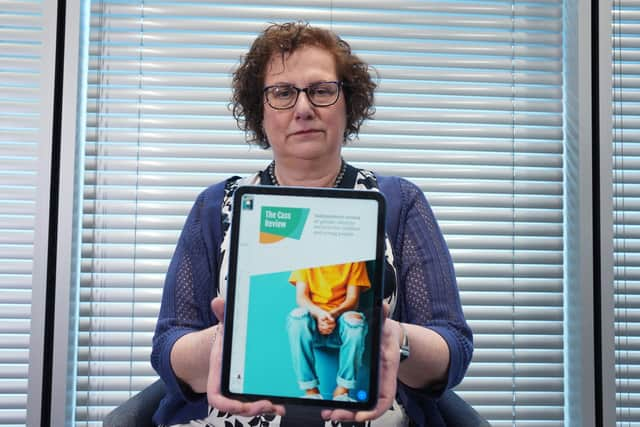Following Cass Report, Scottish Government must conduct urgent review of child gender identity services – Scotsman comment


An independent review of NHS England’s child gender identity services contains findings that will be profoundly shocking to all those whose primary interest is that young people should receive the highest standards of medical care, rather than waging a sickening ‘culture war’.
Dr Hilary Cass, who chaired the review, wrote that experienced clinicians found themselves “dismissed and invalidated” at times, with young people “caught in the middle of a stormy social discourse”. The report said the review’s work had been made “significantly harder” by “the surrounding noise and increasingly toxic, ideological and polarised public debate”.
Advertisement
Hide AdAdvertisement
Hide AdSome clinicians were “fearful of working with gender-questioning young people” because expectations could be “far from usual clinical practice”; some were “afraid to openly discuss their views” because of online vilification.
The review recommended “extreme caution” over the use of masculinising or feminising hormones between the ages of 16 and 18, with the evidence about their use and that of puberty blockers described as “weak”, amid a sea of “easily accessible” online misinformation.
“Young people’s sense of identity is not always fixed and may evolve over time… Whilst some young people may feel an urgency to transition, young adults looking back at their younger selves would often advise slowing down,” the report said. “For some, the best outcome will be transition, whereas others may resolve their distress in other ways. Some may transition and then de/retransition and/or experience regret.”
The Scottish Government simply cannot ignore this report. It must carry out its own urgent review of services here. This issue cannot be seen through the lens of an adult culture war in which troubled children, who may not always understand their best interests, become pawns.
Children who express feelings of gender dysphoria should always be treated carefully and with respect. But waiting until they reach an age when they can make informed decisions before any decisive medical interventions should be, at the very least, the starting point. The risk is that ideologically driven treatments may be doing more harm than good to young people who rely on adults to look after them. This is about medicine, not politics.
Comments
Want to join the conversation? Please or to comment on this article.
